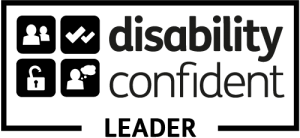Holidays or Short Breaks? Maintaining good mental health, wellbeing and productivity
“We’re all going on a summer holiday…”
Holidays, love them or hate them, but do they maintain good mental health, wellbeing and productivity in the home and work place?
According to experts, people who do not take holidays can suffer from stress, anxiety, higher blood pressure and sleepless nights. It can also put a strain on relationships with partners, children, friends and co-workers.
Researchers from Finland found that employees working 11 hours or more a day were twice as likely to experience major depressive episodes.
It has been reported that taking a holiday makes us more creative problem solvers, refreshes our motivation, increases the levels of happiness within and lowers the level of stress and emotional exhaustion. These benefits promote a better survival rate for people at risk of heart problems and enhances better family and peer relationships.
Do we need a holiday or would a short break be of more benefit?
Short breaks are more fitting with certain people, they can be less stressful than ‘main holidays’, resulting in a better mental state. Happiness comes from planning and anticipating a ‘short break’, away from the norm of their life.
Dr. Rachel Andrew of the British Psychological Society states that the benefits of ‘breaks’, which are shorter time periods compared to a main holiday, can last up to two weeks post-break and be felt for many months there-after. It is also essential to ‘switch off’ from a mundane regular daily routine in the home or work place.
Clinical Psychologist, Corinne Usher records an expression used by people who are workaholics as ‘leisure sickness’. This is where certain people suffer from a state of stress and anxiety being away from their working environment while on a family holiday.
Richard Smith of ‘Croner’ suggests that the culture of working long hours could be fueling the occupational stress, absenteeism and lower productivity.
Melissa Compton-Edwards, author, (Married to the Job), has a warning for employers that excessive hours can have a negative effect on job performance and cause costly or reputation-damaging mistakes and also employers are increasingly faced with litigation.
Therefore, taking more short term breaks to pursue leisure activities will be more beneficial to both the employee and employer in improved mental health, wellbeing and performance.









